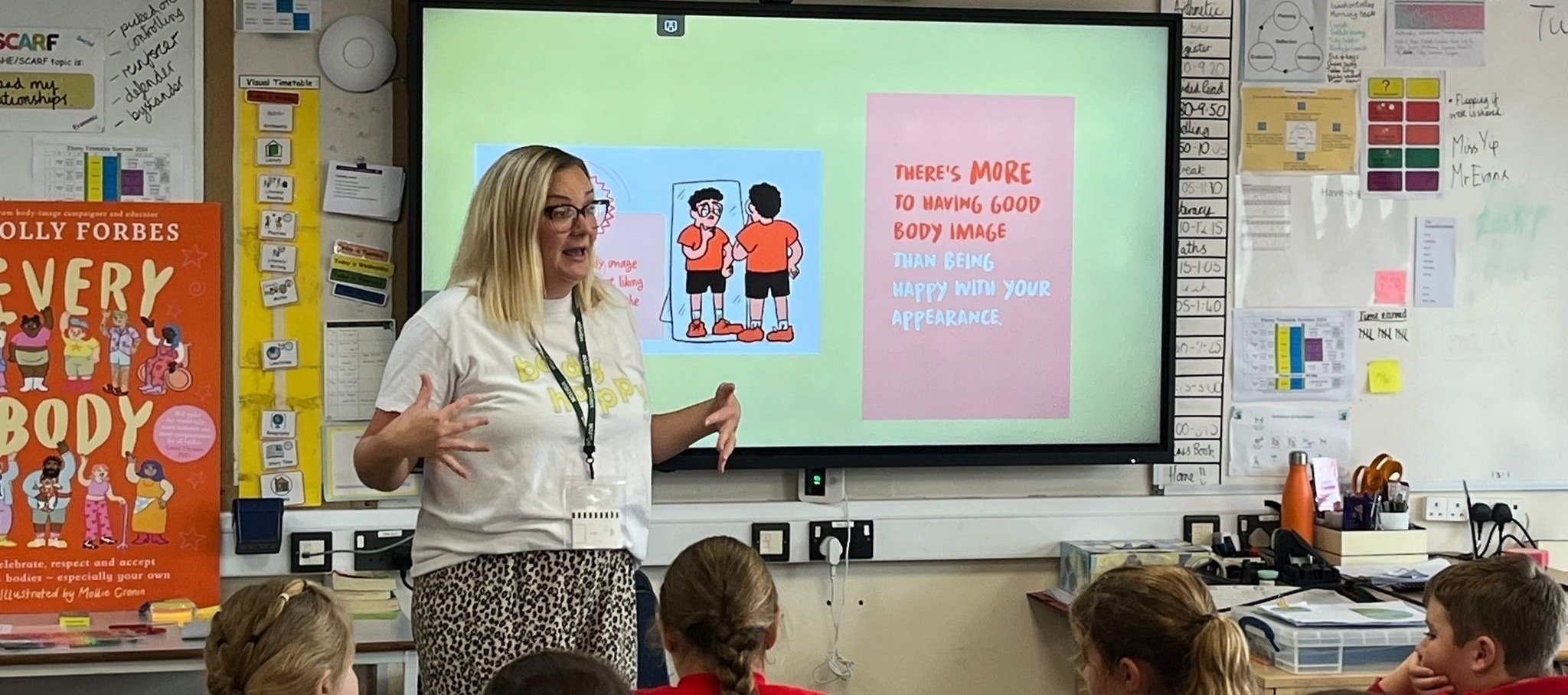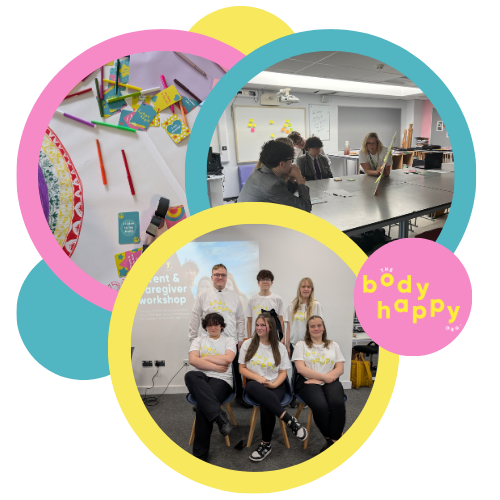
Body Happy Schools Programme
Helping children and young people celebrate, respect and accept ALL bodies — especially their own.
What is the Body Happy Schools Programme?
The Body Happy Schools Programme is the UK’s first whole-school body respect education programme. It goes beyond PSHE — embedding inclusion, safeguarding, wellbeing and educational equity across your setting.
Through CPD, peer advocacy, student workshops, curriculum resources, and engagement and support for parents and carers, we help schools embed a whole-school approach — creating lasting cultures of inclusion, wellbeing and body respect.
We are proud winners of the Fair Education Alliance Innovation Award, recognising our fresh approach: treating body image as a body respect and inclusion issue — not just a PSHE topic.
This award funded the pilot phase, enabling the development of an evidence-informed, school-tested programme designed for sustainable, school-wide change.
Theory of Change
Body shame starts young — but so can body respect.
We’ve created a clear, evidence-informed Theory of Change to guide our work. It’s a practical roadmap that shows how schools can move from piecemeal PSHE to lasting, whole-school culture change.
At its heart is a simple belief: when students feel accepted and respected in their bodies, they thrive - in friendships, in learning, and in life. Every strand of our programme is designed to build that foundation, from teacher training to peer advocacy, curriculum to community.
The Four Body Happy Skills
Each programme strand is built around the Four Body Happy Skills — evidence-informed learning goals aligned with the curriculum, Ofsted standards, and wider school priorities:
1. Body Happy Literacy
Developing body image literacy — understanding how we think and feel about our bodies — alongside learning about physical development and body diversity.
2. Body Happy Diversity
Building emotional tools to navigate appearance pressures, appearance-related distress, bullying, social media, and supporting positive mental health.
3. Body Happy Kindness
Developing empathy, self-compassion, and respectful peer relationships to strengthen inclusive classroom cultures.
4. Body Happy Advocacy
Understanding and challenging inequalities related to body image, bias, and representation — empowering pupils to champion inclusion.
All four Body Happy Skills align with statutory PSHE and RSHE guidance, Ofsted inspection priorities, safeguarding expectations, and curriculum outcomes — while also supporting a whole-school approach to wellbeing and inclusion.
“This programme is really important to us because it directly supports emotional well-being, self-esteem, and development of young people during one of the most vulnerable and influential stages of their lives. It’s so important for us because when students feel good about themselves they’re more likely to engage positively in school – both academically and socially.”


